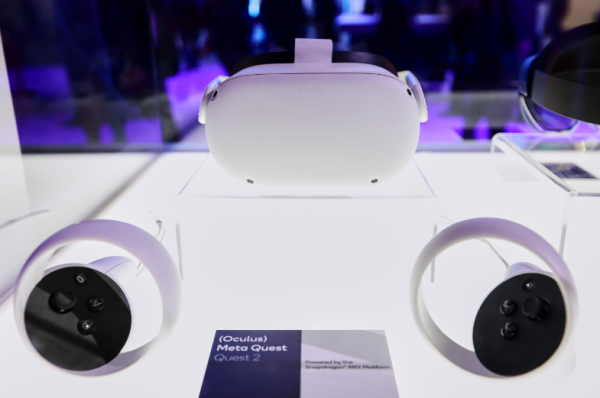Meta’s Reality Labs Lost $13.7 Billion in 2022
Meta’s latest quarterly earnings call this week emphasized AI more than the metaverse, but its XR investments loomed large, just like in the previous earnings calls.
Meta has been breaking out Reality Labs financial performance within its own segment in its financial reporting from 2021. This breakdown now makes it possible to make sense of Meta’s investments in its VR and AR division and the financial performance of its XR initiatives.
According to the latest reports, Meta’s Reality Labs had $13.7 billion in operating losses in 2022. This is a considerable increase over the $10.2 billion it spent on Reality Labs in 2021. Against this expenditure, Reality Labs raked in revenues of $2.16 billion in the same year. This was a drop from the 2021 revenues of $2.27 billion.

For some perspective on just how much Meta is sinking into its XR division, the company purchased Oculus in 2014 for $2 billion. Over the years, its investment in the XR market segment has escalated. Beyond its financial investment in Reality Labs, the company has also been acquiring some of the leading software companies and startups. One of its recent acquisitions which was unsuccessfully challenged by FTC was its purchase of Within, the creator of the virtual reality workout app Supernatural.
Although Meta is yet to provide its Reality Labs headcount, it is estimated that the division had about 17,000 employees before last year’s layoff which axed more than 11,000 employees from the company and affected Reality Labs. Most of the money Meta spends in the division goes into staffing and hardware development.
Meta is expecting these losses to rise in 2023, according to the company’s CFO Susan Li. Li says the company will continue investing meaningfully in XR considering the “significant long-term opportunities” that the company sees. Li says the company’s investments in AR, VR and the metaverse are “a long-duration investment.”
Meta will be launching its next-generation consumer virtual reality headset, the Quest 3, later in the year. The Quest 3 headset is a revamped version of the company’s current Quest hardware and features mixed reality functions.
Meta will also be facing competition from Apple which is set to launch its AR/VR headset by June this year.
Zuckerberg stressed that Reality Labs’ focus covers Augmented Reality, Virtual Reality, and metaverse-related software like Horizon Worlds.
Zuckerberg believes software and social platform could be “the most critical part” of what the company is doing but the software just happens to be less capital-intensive than hardware development.
Meta will likely place less emphasis on the metaverse publicly to placate skeptical investors but it is going to maintain its XR investments over the long haul.
Zuckerberg says that the signals he has seen so far will not alter Reality Labs’ long-term strategy. He says the company is constantly tuning the specifics of how it executes its metaverse strategy and this will form part of Meta’s “ongoing efficiency work.”
https://virtualrealitytimes.com/2023/02/05/metas-reality-labs-lost-13-7-billion-in-2022/https://virtualrealitytimes.com/wp-content/uploads/2023/02/Meta-Quest-2-600x398.pnghttps://virtualrealitytimes.com/wp-content/uploads/2023/02/Meta-Quest-2-150x90.pngBusinessMeta’s latest quarterly earnings call this week emphasized AI more than the metaverse, but its XR investments loomed large, just like in the previous earnings calls. Meta has been breaking out Reality Labs financial performance within its own segment in its financial reporting from 2021. This breakdown now makes it...Rob GrantRob Grant[email protected]AuthorVirtual Reality Times - Metaverse & VR
